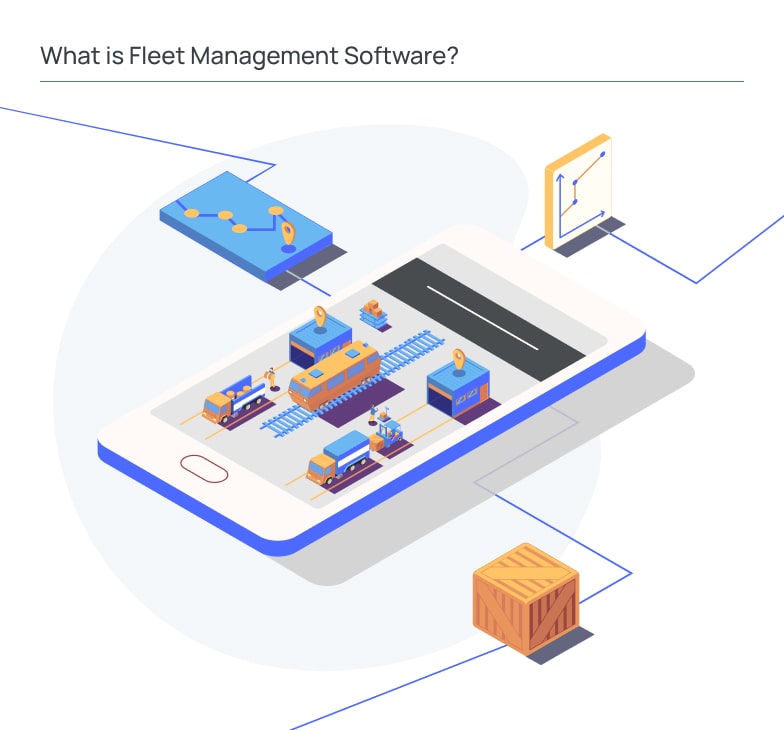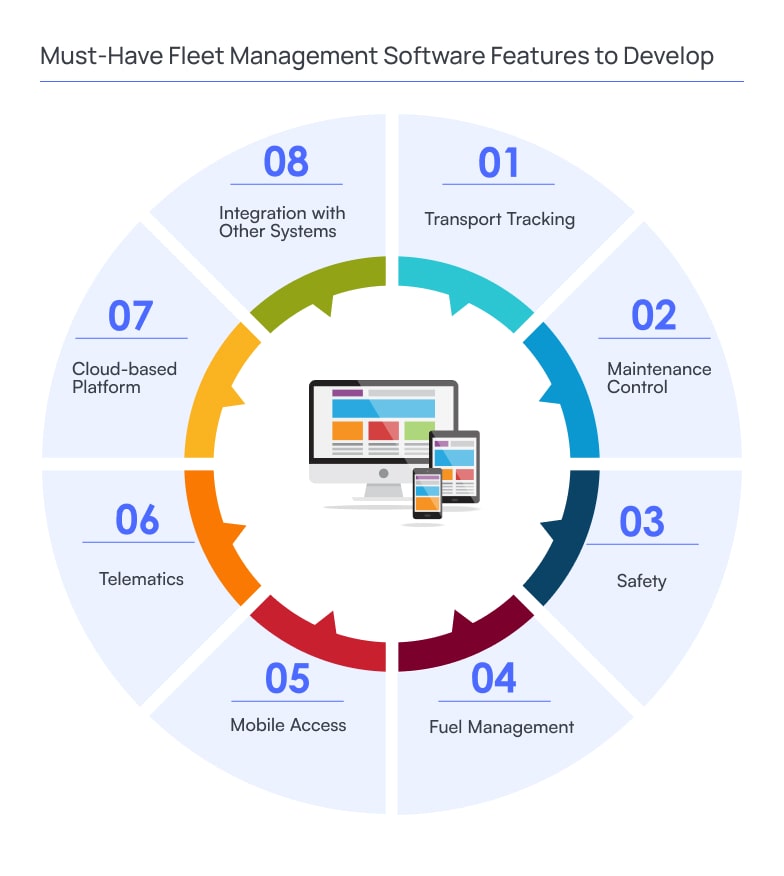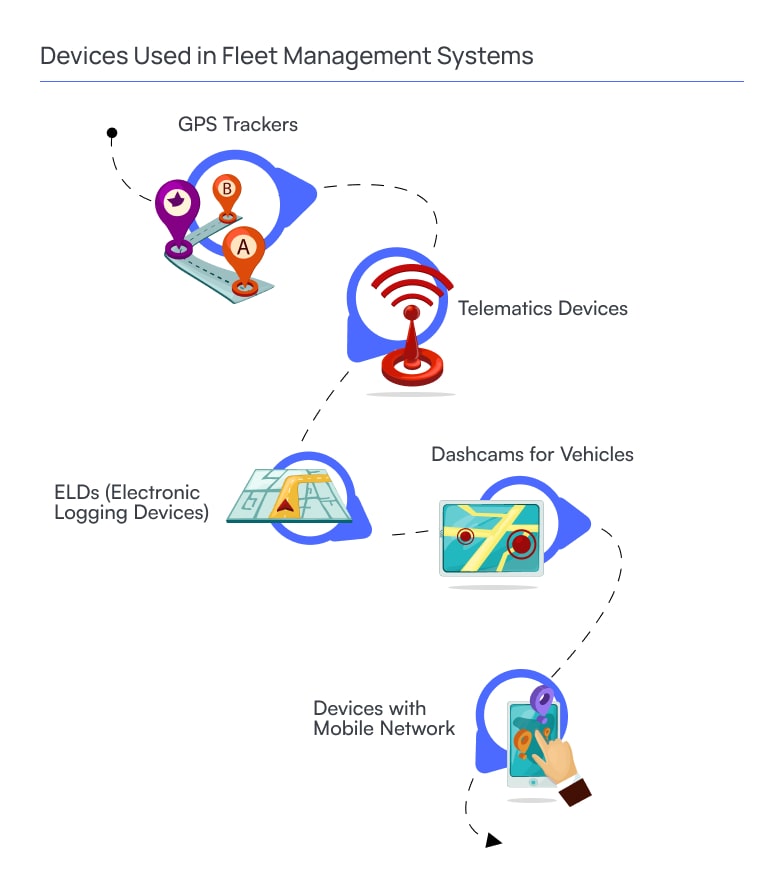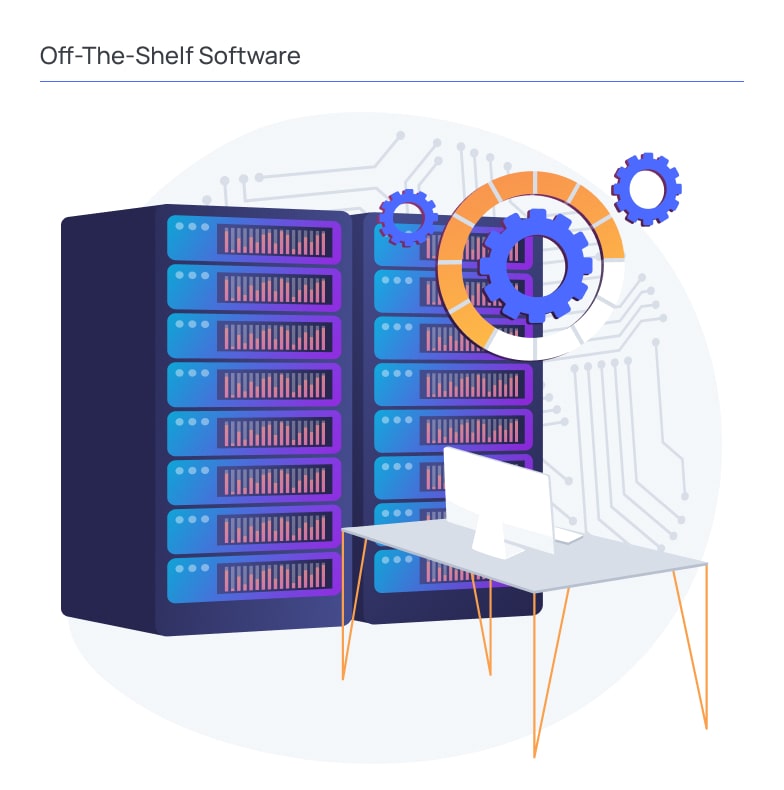When you are a fleet business owner, you always have many responsibilities. You know, it is about clients, their orders, routes, vehicles, schedules, etc. But do not be worried, just your smartness and efficacy can simplify these processes. Binerals, a fleet management software engineer gives knowledge and advice in this niche. Want to know more?
You will have to create fleet management software for controlling fleets and budgetary allocations. This can be done by adopting more efficient coding practices, enhancing your development process, or even outsourcing cost-effective resources. The experienced Binerals team knows how to provide it. But just continue reading and I’ll demonstrate it in detail!
What is Fleet Management Software?
If you are running a truck fleet, you need to know where they are, how things go on with them, and if indeed they’re ahead of time. This is where the fleet management software comes in it’s like a control tower for all your vehicles. It helps you observe and manage everything. It’s a wind of change for anyone who relies on a fleet to do business!

Challenges that Fleet Business Owners Confront
Administrative Tasks Require a Lot of Time: | Growing Fuel Expenses: | Issues in Communication with Drivers: | Inaccurate Schedules: |
Paperwork, data entry for eternity, and hours scheduling. At this point, you understand that it is not advisable to waste time which could be used on other things more important. | Fuel prices are volatile and thus change constantly. For a fleet business, this means battling constantly to keep fuel costs under control without compromising efficiency. | It’s like playing broken telephone. Misunderstanding by the fleet base and drivers is a common problem, resulting in mix-ups every once in a while. | Traffic, breakdowns, and other unplanned occurrences can cause inaccurate arrival times and frustrated customers disrupting schedules. |
Benefits of Fleet Management Software
- Rised Efficiency: Fleet management software is a well-oiled machine. This automates routine tasks, which involve less time on papers, and more emphasis is put on the bigger picture.
- Vehicle Utilization: Fleet management system illuminates hidden underutilized cars so they can be redeployed or even disposed of if necessary. Fleet ghosts are idle vehicles that drain resources for no benefit to the journey.
- Reduce expenses: It is all about making money. By planning routes, monitoring fuel consumption, and avoiding expensive maintenance problems this software saves money.
- Providing Safety: Fleet management system features, such as the monitoring of driver behavior, make your software akin to a co-pilot that ensures safer trips and minimizes risks associated with accidents.
- Satisfying Service: Real-time tracking and improved scheduling lead to more precise arrival times, creating satisfied customers. Happy customers mean repeat business.
- Compliance with regulations: It is like writing a rulebook as you go along. This software ensures that your fleet remains compliant with transportation and safety laws, thus avoiding stiff penalties.
Must-Have Fleet Management Software Features to Develop
When it comes to build fleet management software, certain features aren’t just nice-to-haves—they simply must be included. With this, you know what score of success will get so do not worry. Think of them as the toolbox every fleet manager needs to keep things running smoothly:

Transport Tracking: This is your fleet’s GPS. It allows you to know the location of every vehicle at any given moment. Very useful for finding routes and prompt responses to delays or problems.
Maintenance Control: It’s like having a personal mechanic. This particular feature determines when each vehicle requires maintenance or repair, thus avoiding breakdowns and ultimately saving money.
Safety: First of all, safety management – you have heard this piece of advice a million times. This ranges from monitoring driving habits to ensuring that vehicles are in an appropriate condition for the road. It’s about ensuring the safety of drivers and other road users.
Fuel Management: As the prices of fuel always fluctuate, this feature assists in monitoring how much fuel is being consumed. It’s about researching how to be more fuel-efficient and cost-effective.
Mobile Access: Nowadays, mobile-friendly is of much importance. This feature makes it possible for you to manage your fleet right from your phone or tablet irrespective of where you are.
Telematics: This magic box placed in cars, gathers a treasure trove of data – driving behavior, location point; fuel consumption, and so on. It is like the eyes and ears of a fleet management system, providing it with information that enables navigating effectively.
Cloud-based Platform: Cloud-based systems make accessibility the focus. To have control, think responsibly about the fleet management app development. Managers can view real-time data and manage fleet operations anywhere, anytime without having to remain within a physical office. This is a mobile command center that can be deployed anywhere.
Integration with Other Systems: Fleet management systems do not work in isolation. They seamlessly integrate with accounting programs, dispatch systems, and even HR platforms as they help to simplify workflows while reducing the problem of data overload.
Devices Used in Fleet Management Systems
It was not so long ago that it was more difficult to maintain control and handle fleet processes without the help of devices. In addition, the digital generation of those days had poor capabilities. Various devices have a serious role to play today, but what distinguishes them from the rest?

GPS Trackers
The foundation of vehicle management software development. These devices enable real-time location, allowing you to monitor your fleet closely.
Telematics Devices
These are the brains of your vehicles. They gather data such as vehicle health, fuel consumption, and driver conduct so you have the full picture of how your fleet operates.
ELDs (Electronic Logging Devices)
These are like digital logbooks, ensuring drivers comply with hours-of-service regulations and helping in maintaining accurate driving records. Electronic Logging Devices can record time, distance, speed, and car maintenance.
Dashcams for Vehicles
Your eyes on the road. Dashcams capture video footage which is important in case of accidents and also help to improve the safety on the road. They are applicable to both up and back views.
Devices with Mobile Network
Smartphones and tablets play a significant role in modern fleet management systems. They facilitate the system to be accessed on mobile, enabling management and drivers to stay connected no matter their location.
A Step-by-Step Guide for Fleet Management Software Development
Developing fleet management software system is a long road trip – you need a clear map and the right tools to get to your destination. That’s all that really matters:| 1. Research | It’s your discovery phase in software development, let us start! Start by understanding your market. What do businesses need? What do current solutions lack? |
| 2. The Discovery Phase | Now, you’re outlining the roadmap. Define what your software will do, establish objectives, and identify possible obstacles. Building something is about understanding what you want to do before starting. |
| 3. UX/UI Design | This refers to the appearance and feel of your software. Your user dashboard should be intuitive, easy to use, and good-looking. |
| 4. MVP Development | MVP refers to the Minimum Viable Product. It’s like setting out on a trip with nothing but the basics. Create a simple prototype of your software and pilot it. This allows you to know if your path is correct. |
| 5. Quality Assurance | Time to make sure and double-check everything. This step is similar to ensuring that your car runs like top gear before a long journey, it ensures the smooth running of software without bugs. |
| 6. Deployment | You’re hitting the road. Your software goes live and is now available for users. |
| 7. Maintenance | The journey doesn’t end at deployment. To increase your quality and profit, you can employ a business analyst in software development. Go ahead, you will not regret it. |
Cost of Fleet Management Software Development
Undoubtedly, deep down you know that the cost of developing fleet management software can be as variable as cars – from budget to luxury. Here’s a rough guide:- MVP: This is your basic model – functional but without the high-end features. It’s more affordable and a good starting point for small businesses or startups.
- Complex Application: Think of this as a mid-range car with some nice features. It’s more expensive than an MVP but offers more functionality.
- Advanced Application: This is your top-of-the-line model, loaded with advanced features like AI. It’s the most expensive option but offers the most comprehensive solution.
Off-The-Shelf Software VS Developing Your Own Fleet Management System
When it comes to selecting a fleet management solution, the decision between off-the-shelf software and custom-built software is like choosing between buying an existing house or constructing a new one from scratch. Each option has its unique set of benefits and considerations:Off-The-Shelf Software
This is like “all-inclusive” in fleet management. When moving into a pre-built house, you know – everything is already set up and ready to go. The main advantage here is the speed of implementation. You can get your operations run quickly, often at a lower initial cost compared to a custom solution. This makes it an attractive choice for businesses needing immediate deployment and those with more general requirements.
However, the unique nature of off-the-shelf software may leave some of your specific needs unaddressed. It’s like living in a house where the room layouts don’t match what you would have chosen. Looks functional, yes, but perhaps not perfectly suited to your unique preferences and workflows.
Custom Fleet Management Software Development
Choosing to develop custom software is as good as building your own house from scratch. It is more time and resource-consuming, but the reward where you will have a tailor-fit system for your specific business requirements. Clever logistics management software development makes it possible to design its features and functions according to your processes of operation as well as the purpose or goals set.
It provides flexibility and scalability that off-the-shelf software often can’t match. This means as your business grows or evolves, your software can easily adapt to these changes. Although this route requires a more significant investment and a longer setup time, it includes long-term benefits, a perfect fit for your business, and potentially greater ROI.
Now it is obvious that off-the-shelf software provides a quick setup and cost efficiency for the standard needs. On the other hand, custom development gives a bespoke solution that can be developed according to your business and offers tactical advantages. Yes, it’s true!
Summarizing
Closing the fleet management software development process is a complicated but exciting trip. It involves in-depth research and careful design during the discovery stage, followed by a user experience that is easy to use. The development of an effective MVP becomes ideal for testing and adjustments, whereas binary quality assurance ensures that the product is error-free.
Deployment marks the beginning of real-world application, but maintenance is crucial for long-term success. You invest to develop fleet management software in such software varies, reflecting the scope and complexity of the application. But it must choose between off-the-shelf software and custom development based on business needs or unique requirements.
Binerals is unique in this field by its deep understanding of fleet management application development. The company is committed to providing solutions that not only satisfy but exceed client expectations by treating each stage of development with precision and utmost seriousness. Binerals’ expertise is a guiding light in the fleet management software market as it ensures the efficiency and dependability of its programming, along with special features that are designed to cater to precise needs specific to each business. Best get started with it, good luck!
FAQ
What is Fleet Management Software?
Fleet management software is an online tool that aids businesses to manage, track, and maintain their vehicle fleets. It encompasses vehicle tracking, maintenance scheduling feature driver management, and reporting analytics.Why is Fleet Management Software Important?
This software plays an important role in the increase of efficiency, safety, and cost-effectiveness of fleeting operations. They assist in diminishing the burden of administrative tasks, enhancing maintenance for vehicles, and ensuring adherence to rules.What are the Key Features of Fleet Management Software?
Key features include vehicle tracking, maintenance management, driver management, safety management, fuel handling, and reporting as well as analytics together with the ability to access it from mobile.What is the Cost of Developing Fleet Management Software?
The price depends on the level of complexity and required features. It can be anywhere from a simple MVP to elaborate apps with custom functionality.Should I Choose Off-The-Shelf Software or Develop a Custom Solution?
This depends on your specific business needs. Using off-the-shelf software is often quick and cost-effective for standard requirements, but developing a custom solution tailored to specific business needs can be time-consuming.